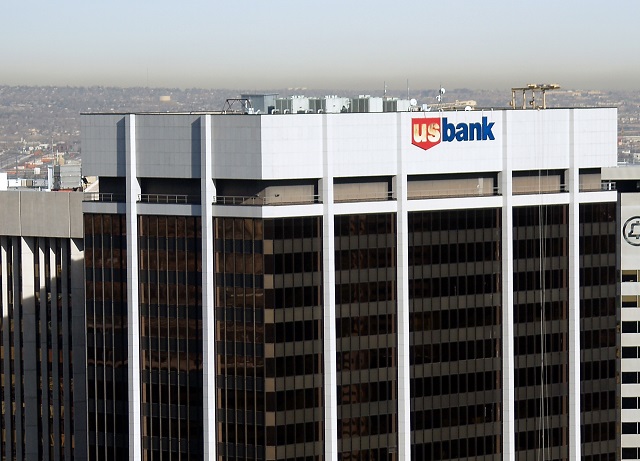
A recent viral article published by EcoWatch has inaccurately reported that US Bank is the “first major bank to stop financing pipeline construction.” If you take a close look at US Bank’s 2017 Environmental Responsibility Policy, you’ll see it only committed to cease “project financing.” There’s the rub. Despite this new policy, US Bank continues to provide hundreds of millions of dollars of corporate financing to pipeline companies for general use, including pipeline construction.
US Bank is behind many oil giants, including Enbridge, Energy Transfer Partners (here and here), Phillips 66 (here and here), and Marathon. All four of these companies own major stakes in the Dakota Access pipeline, and Phillips 66 and Marathon are the primary shippers of oil through DAPL. US Bank also finances Cabot Oil & Gas, DTE Energy (here and here), EQT (here and here), National Fuel Gas, Plains, Range Resources and Williams.
So while they may not be providing project-level loans, US Bank is certainly responsible for the continuing construction of thousands of pipelines.
“Just as weapon manufacturers are responsible for the terror their products reign, by backing big oil, these banks are responsible for the pipelines that violently desecrate indigenous lands and waters,” says Jacqueline Fielder (Mnicoujou Lakota, Hidatsa) an organizer of the San Francisco Defund DAPL Coalition.
The difference between project-level vs. corporate-level financing is important.
Pipeline companies often do not need to structure or disclose their capital flows down to the project level. For example, the entire Dakota Access pipeline system, including its connections to Texas and Louisiana, has an estimated price tag of $5.5 billion, but only $2.5 billion was structured as project-level financing.
The recently launched Mazaska Talks campaign aims to keep the pressure up on the banks funding the Bayou Bridge pipeline, part of the DAPL system, as well as all four proposed tar sands pipelines: Keystone XL, Line 3, Trans Mountain, and Energy East. None of these has project-level financing, so the targets are the pipeline companies themselves: TransCanada, Enbridge, and Kinder Morgan. Not surprisingly, the banks funding all four pipelines are nearly the same as the list of DAPL funders compiled by Food & Water Watch.
These financial institutions are in the business of profiting from extraction and aren’t going to back out easily.
During DAPL’s construction, US Bank provided Energy Transfer Partners with a $175 million line of credit. Just six weeks ago, US Bank recommitted to Energy Transfer on that deal, but the new agreement no longer discloses how much each bank has committed.
Now they say they will stop “project financing”? US Bank knows that the average consumer would not pay attention to the complicated bigger picture, so it was a very clever public relations move — and many green groups bought it.
If US Bank is going to stop financing pipelines, it has to stop lending at the corporate level, too. As early as July, we should get a chance to see if US Bank’s new policy is just words.
On July 2, 2017, the credit agreement EQT has with US Bank and others is set to expire. Marathon, a shipper on and a 9 percent stakeholder of DAPL, has an agreement involving US Bank that expires in late July 2017. Let’s wait to cheer US Bank until it puts its money where its mouth is.
Now is the time to step up our demands that banks divest from industries that endanger our future generations, says Rachel Heaton (Muckleshoot Tribe) of Mazaska Talks. “We know there are always loopholes through which banks will try to pass off responsibility, but we will continue to resist until these banks completely divest from all pipeline and fossil fuel corporations and incorporate the Free, Prior, and Informed Consent of Indigenous peoples into their corporate lending structures.”
5 Days Left: All gifts to Truthout now matched!
From now until the end of the year, all donations to Truthout will be matched dollar for dollar up to $50,000! Thanks to a generous supporter, your one-time gift today will be matched immediately. As well, your monthly donation will be matched for the whole first year, doubling your impact.
We have just 5 days left to raise $50,000 and receive the full match.
This matching gift comes at a critical time. As Trump attempts to silence dissenting voices and oppositional nonprofits, reader support is our best defense against the right-wing agenda.
Help Truthout confront Trump’s fascism in 2026, and have your donation matched now!